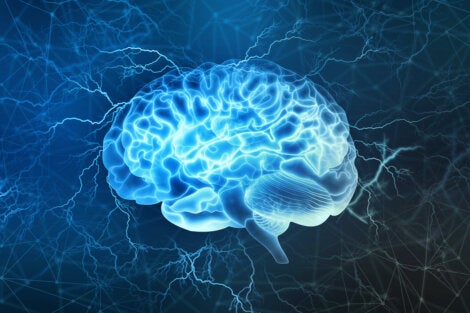How to Get What You Want According to Neuroscience


Written and verified by the psychologist Valeria Sabater
To get what you want, you don’t need to wish on a star or hope you get lucky. Desires are goals, and you can achieve your goals with effort, commitment, and a pinch of enthusiasm. Neuroscience has some fascinating and useful insights that can help you along the way, allowing you to understand how your brain works and how to maximize your potential.
Experts are fascinated by the human brain. In fact, understanding how it works is the first step to understanding ourselves better and working with our brain instead of against it.
As Carl Sagan said in his book Broca’s Brain, understanding is synonymous with happiness, and few things are more satisfying than learning useful things. Thus, it’s a great idea to know the approaches, strategies, and elements that will make it easier to get what you want. It might even change your life!

Your brain can help you get what you want
Humans have powers. Not supernatural powers, but capabilities fed by skills that you can develop and apply. We’re talking about aspects such as creativity, trust, and the ability to dream, persist, plan, and essentially make use of everything that the brain makes available to you.
Consequently, knowing how to make the most of these processes is a valuable strategy to get what you want. Without even realizing it, you may behave in ways that go against the natural workings of the brain. Your habits are clearly harmful to your inner balance. Thus, if you can get in sync with your brain, you’ll be better equipped to achieve your goals.
Geneticist Francis Collins said that the brain is the most complicated organ in the universe. It has billions of neurons, and each neuron is responsible for approximately 10,000 connections. Why not use that incredible capacity to your benefit? It’s exciting to think that you can use these natural functions in order to be happier and more fulfilled.
Below, discover the strategies that will help you get what you want.
If you want something to happen, come up with a plan and adopt healthy habits
The brain needs habits, routines, and activities to organize time and offer safety. All of that reduces stress and regulates countless internal processes. The area of the brain that allows you to adopt these habits for better concentration and focus is the corpus striatum.
Routines help the body and mind work in harmony to achieve your goals. Knowing what you’re going to do ahead of time also reduces delay and procrastination.
The first step to getting what you want is to come up with plans and schedules.
Deactivate negative thoughts with physical activity and music
To get what you want, you’ll have to face your worst enemies: defeatism and negativity. These attitudes manifest in thoughts such as “Forget about it, you’ll never accomplish that” or “That’s impossible”.
When you start down this path, you can try two strategies. The first is to get moving. Engage your body in physical activity. You could go on a walk, dance, or ride your bike. It doesn’t matter which activity you choose. The important thing is to activate your body and your heart to provide your brain endorphins and serotonin. Even half an hour of movement is enough to see things in a different light.
There’s another wonderful tool at your disposal: music. Not only is music capable of improving your mood, but it can also improve your selective attention abilities. Studies such as this one from the University of Geneva back up that theory.
Believe in yourself
Scientists at Wellcome Trust, a biomedical research center in London, conducted an interesting study in 2012. The goal of this study was to understand why some people make better choices and decisions, are in tune with what they want, and tend to achieve their goals.
MRI scans showed researchers that, before you make a decision, there’s a higher degree of activation in the frontal area of the brain. Specifically, the ventromedial prefrontal cortex. What does that mean? It means that this area helps you evaluate all your options. To do that correctly, there’s another important process that comes into play: self-confidence.
You have to believe in yourself. You make good decisions only when you’re in tune with what you want and believe in your abilities. That’s because you’re able to understand what the best thing to do is. If you feel scared or unsure, it’ll be hard to get on the right path.

When you’re tired, do something creative
When you’re working towards getting what you want, it’s easy to feel mentally worn out. A common response to mental exhaustion is to do something mundane, such as watching a TV show. You look for something that requires no effort; you can just be a passive observer.
Although it might seem counterintuitive, your brain would be much happier if you did something creative when you’re tired. Drawing, sculpting, composing, painting, or anything else that activates the mind and motivates you is a great option. According to Mihaly Csikszentmihalyi, when you’re doing these kinds of activities, you enter the “flow” state, which leads to well-being and happiness.
Use anxiety to your advantage
Lastly, there’s another crucial thing to know about getting what you want. More than you might think, achieving a goal requires appropriate internal activation. In other words, anxiety plays a role in this process.
Before you jump to conclusions, we’re talking about a healthy type of anxiety. It’s the kind that activates motivation and pushes you to get moving and react to the stimuli around you. This healthy anxiety makes you well aware and tuned in to potential opportunities.
Of course, if you’re in tune with your body and mind, you’ll be able to make sure that anxiety doesn’t take over. If it does, your brain is no longer your ally. Dreams turn into worries, and it becomes very difficult to reach your goals. Don’t forget that!
In conclusion, these strategies are helpful starting points to help you get what you want. They’re also great for mental self-care. Try them today!
All cited sources were thoroughly reviewed by our team to ensure their quality, reliability, currency, and validity. The bibliography of this article was considered reliable and of academic or scientific accuracy.
- Benedetto De Martino, Stephen M Fleming, Neil Garrett, Raymond J Dolan. Confidence in value-based choice. Nature Neuroscience, 2012; DOI: 10.1038/nn.3279
- Fernandez, N. B., Trost, W. J., & Vuilleumier, P. (2020). Brain networks mediating the influence of background music on selective attention. Social Cognitive and Affective Neuroscience, 14(12), 1441–1452. https://doi.org/10.1093/scan/nsaa004
This text is provided for informational purposes only and does not replace consultation with a professional. If in doubt, consult your specialist.








